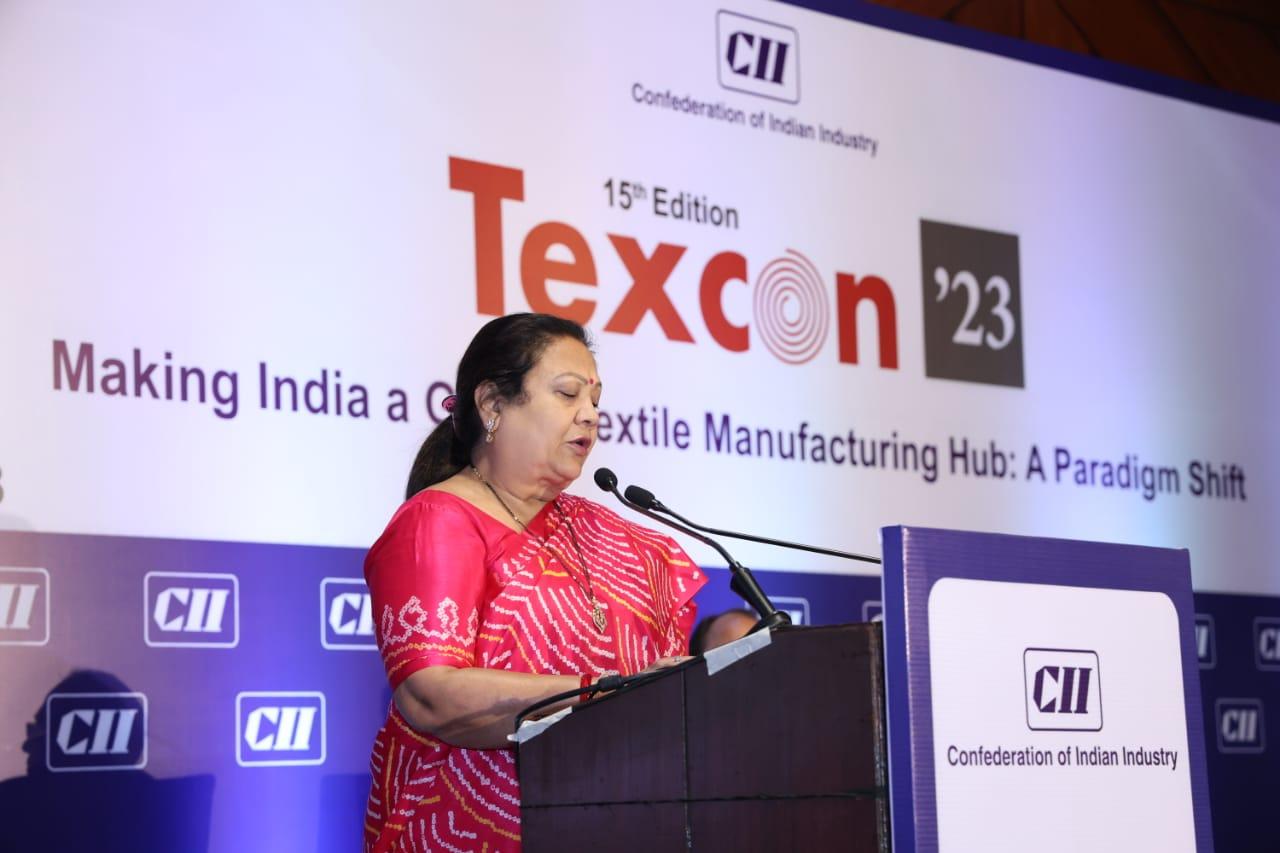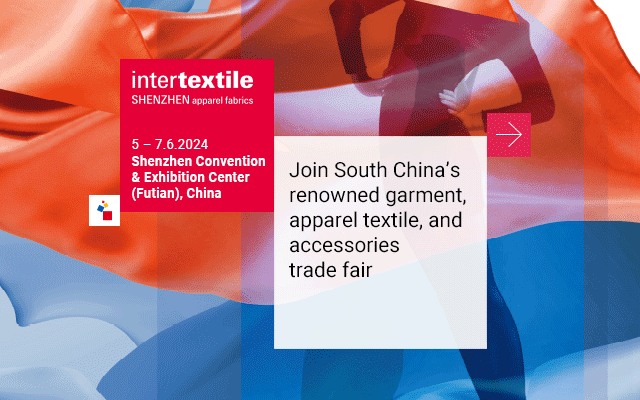Big investments to drive India's textile journey: Darshana Jardosh

Insights
- At the Texcon 23 conference in New Delhi, India's state minister for textiles, Darshana Vikram Jardosh, emphasised the need for increased investment in the textile industry to capitalise on the 'China plus one' market scenario.
- Industry leaders discussed enhancing efficiency, scaling up operations, and promoting exports to make India a global textile hub.
The theme of Texcon-13 was ‘Making India a Global Textile Manufacturing Hub: A Paradigm Shift’. As the event's chief guest, Jardosh said, "The attentiveness of domestic markets, and increased investment in textiles will act as key drivers in creating an environmentally conscious and an equitable textile sector." She emphasised that India must concentrate on export promotion to achieve self-reliance.
Kulin Lalbhai, chairman, CII National Committee on Textiles & Apparel, and executive director, Arvind Ltd, said, “As we envision India contributing towards 5 to 10 per cent of the global trade, the emphasis has to be on scaling up for enhanced efficiency and on working cohesively to transform the textile industry.”
Prashant Agarwal, joint MD, Wazir Advisors, commented on the theme, noting that the key enabling factors for India to achieve $350 billion target by 2030 include micro strength, complete supply chain, scale, cost competitiveness, and enormous government support. H K Agarwal, co-chairman of CII National Committee on Textiles & Apparel and managing director, Grasim Industries Ltd, also addressed the session.
The speakers at the inaugural session expressed the opinion that the global textile and apparel manufacturing landscape is evolving in line with the constantly changing market dynamics. They noted that buyers are increasingly collaborating closely with select suppliers and consolidating their sourcing countries and suppliers. This consolidation is based on multiple factors such as product capabilities, scale, vertical integration, sustainability, traceability, service orientation, and cost factors, which include duty benefits. Additionally, they are focusing on building long-term relationships.
India is well-positioned to become a leader in textile and apparel manufacturing in the coming years, with increased investment across the value chain and improved infrastructure. Owing to its inherent strengths in textiles and apparel, India has the opportunity to establish itself as a global manufacturing hub. Ankur Singh Chauhan, the executive director of CII, gave the opening remarks in the session.
During a panel discussion titled 'Buyer Perspective: How India Can Become the Preferred Sourcing Destination for Global Brands', Jasveen Kaur, senior director of merchandising for garment sourcing at New Times Group, mentioned that Indian exporters still have a long way to go to become preferred suppliers for global brands and retailers. She highlighted that consistency, reliability, competitiveness, upgraded infrastructure, and the assurance of timely delivery are extremely important for international buyers. The discussion also included contributions from Sumanta Chaudhuri, principal advisor for International and Trade Policy at CII; Ravish Nanda, director of sourcing at Benetton India Pvt Ltd; Avinash Mane, senior commercial director of textiles at Lenzing Group; and Vaibhav Sharma, founder of Konception Designs, who all explored this topic further.
During a panel discussion focused on 'Building India as a Global Manufacturing Hub', Gautam Nair, managing director of Matrix Clothing Pvt Ltd, remarked that the 'China plus one' scenario appears promising for India, but only in theory. He pointed out that numerous issues need to be addressed to seize this opportunity effectively. Nair emphasised that scalability is crucial for the Indian industry if it aims to compete effectively with Chinese suppliers.
Shubhra, a trade advisor for the ministry of textiles, stated that the targets set for the Indian textile sector are very achievable. She mentioned that the government has implemented numerous measures to enhance the industry's competitiveness. In response to a query, she expressed her inability to speculate about the second phase of the Production-Linked Incentive (PLI-2) scheme, as it is currently under government consideration. Additionally, various speakers and experts participated in sessions discussing Sustainability & Traceability as the Key to Future Manufacturing Excellence and Securing India’s Future Raw Material Competitiveness, which included the Development of a Raw Material Network for Recycling.
Fibre2Fashion News Desk (KUL)
































-Ltd..jpg?tr=w-120,h-60,c-at_max,cm-pad_resize,bg-ffffff)





.jpg?tr=w-120,h-60,c-at_max,cm-pad_resize,bg-ffffff)
.jpg?tr=w-120,h-60,c-at_max,cm-pad_resize,bg-ffffff)






